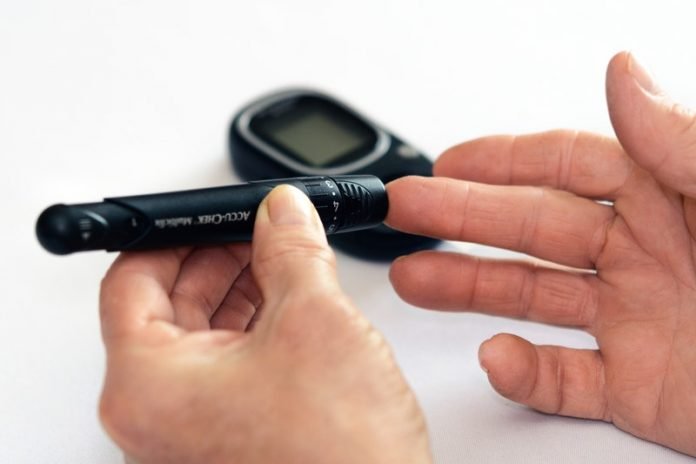
In a new study, researchers found that reducing symptoms of Post-Traumatic Stress Disorder (PTSD) may help reduce the risk of type 2 diabetes.
They found treatment for PTSD was linked to a nearly 50% lower risk of type 2 diabetes.
The research was conducted by a team from Saint Louis University.
PTSD affects up to 12% of civilians and nearly 30% of the veteran population.
Those with PTSD are at risk for other health issues and improvement in PTSD symptoms is linked to improvements in depression, emotional well-being, sleep, blood pressure, and general physical health.
PTSD is linked to an increased risk of type 2 diabetes, which may be explained by the high prevalence of obesity, glucose problems, inflammation, metabolic syndrome and depression among those diagnosed with PTSD versus those without PTSD.
In the study, the team reviewed the Veterans Health Affairs medical record data from 2008 to 2015.
They selected 5,916 cases from among a veteran patient population aged 18 to 70 who had more than two visits to PTSD specialty care between 2008 and 2012.
The patients were followed through until 2015.
After applying eligibility criteria, 1,598 patients with PTSD and free of diabetes risk were included for analysis.
Clinically meaningful symptom reduction is a decrease of 20 points on the PTSD Checklist score.
The team found meaningful treatment for PTSD was linked to a 49% lower risk of type 2 diabetes.
The results were independent of numerous demographic, psychiatric and physical comorbidities.
The link was also independent of the number of PTSD psychotherapy sessions used.
In addition, in patients with PTSD and depression, the team found improvement in PTSD was coupled with a decrease in depression.
The team says the decreased risk for type 2 diabetes appears to follow large PTSD symptom decrease and in patients with both PTSD and depression, improvement in both conditions may be necessary to reduce the risk for type 2 diabetes.
The lead author of the study is Jeffrey Scherrer, Ph.D., a professor in Family and Community Medicine at SLU.
The study is published in JAMA Psychiatry.
Copyright © 2019 Knowridge Science Report. All rights reserved.



